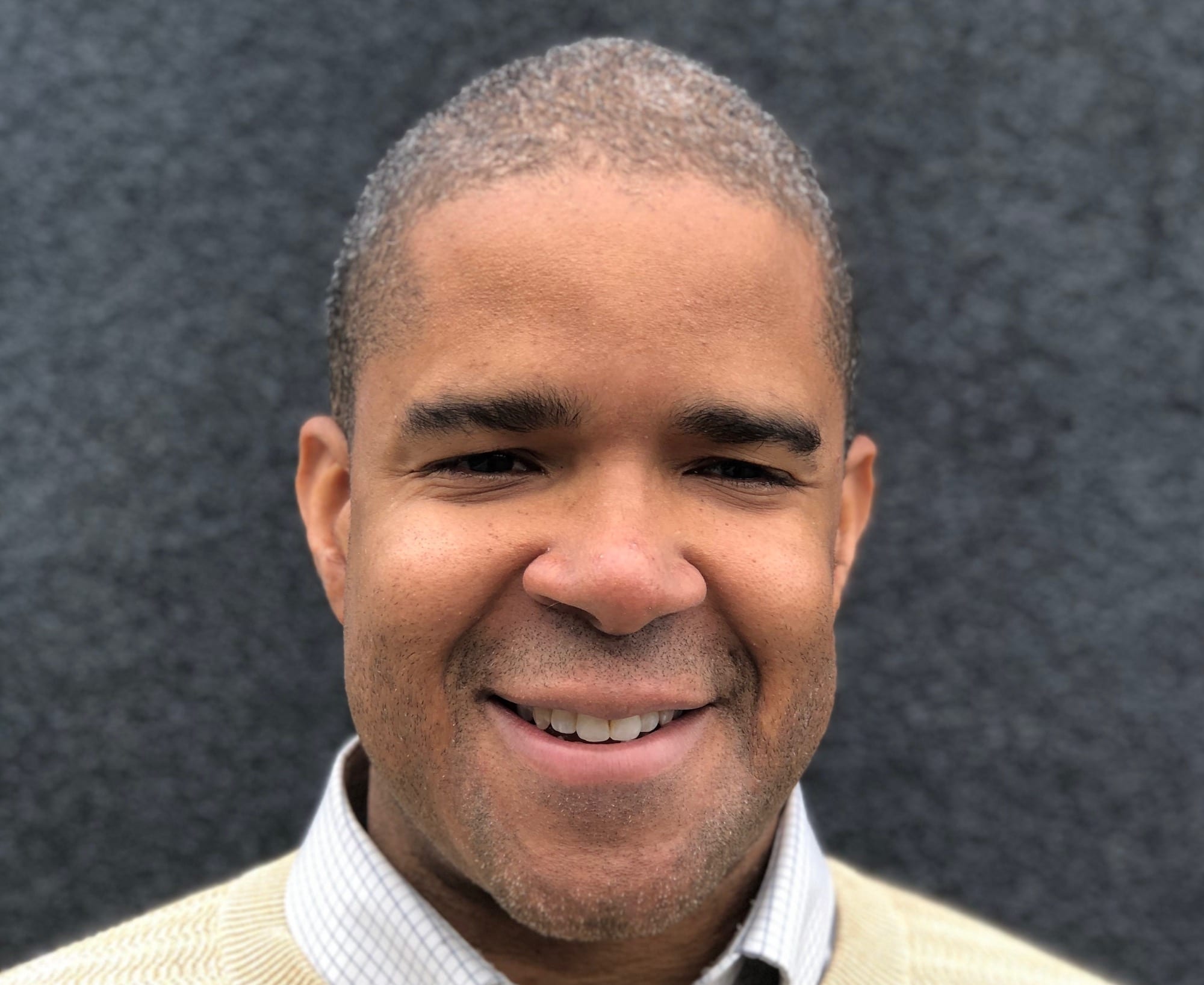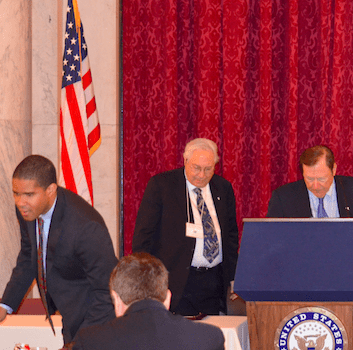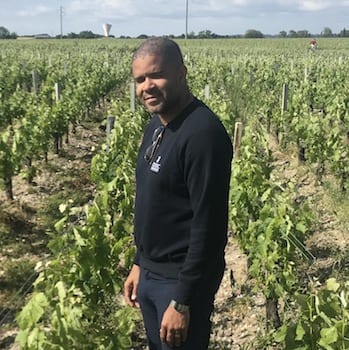Listening to people’s stories about their problems as a young legislative aide in Texas ignited Terrell Baptiste’s interest in healthcare policy as a way to improve lives on a larger scale.

That led Baptiste, EWMBA 20, on a career journey from Washington D.C., where he worked as a senior legislative associate in healthcare policy, and then in communications at the FDA, to Bay Area pharmaceutical company BioMarin, which specializes in rare diseases.
Now focused on investing in healthcare companies, he also volunteers at the MLK Jr. Outpatient Center in Los Angeles, which treats adults with sickle cell disease, a red blood cell disorder that disproportionately impacts the African American community.
We spoke with Baptiste about his healthcare journey, his commitment to improving healthcare in marginalized communities, and his most useful Berkeley courses.
Where did you grow up?
I grew up in Houston and went to high school in Sugarland, a wonderfully diverse community. I don’t identify as a Texan but I have a soft spot for Texas as it brings me positive memories and connects me back to my childhood.
How did you end up in the Texas legislature?
As an undergraduate student at the University of Texas in San Antonio, I became enamored with politics. One of my professors introduced me to a Texas state representative for whom I ultimately interned. Six months later I found myself running his re-election campaign and working 20 hours a day in the process. I’m still tired from that job!

Is that when you became interested in healthcare?
Yes, that’s where I found health policy. It was formative to me. I enjoyed the idea that I could listen to stories, help people, and make things happen from a legislative perspective. It lit a fire in me to figure out how I could make an even bigger impact for good.
So why did you end up choosing to get an MBA?
At the FDA, we would interact with pharmaceutical companies at a distance while we were evaluating their products. We would hear about the state of the companies, but I didn’t have the background to understand what certain things meant. I didn’t understand how the companies were being financially supported. I came to business school to understand more about that. My overarching goal with my career has been and is to improve the lives of marginalized patients and so I see my Berkeley MBA as a tool to further that objective.
Your plan is to shift over to biotech hedge fund investing? Why?
I never imagined I’d go from working with the FDA to actually evaluating these companies from an investment perspective at a biotech hedge fund. It’s nice to be able to take my understanding of the way the government thinks about treatments for people as well as the operating experience from BioMarin—where I worked as a regulatory policy analyst, pipeline commercialization associate, and global market access senior analyst—and apply that to investing roles. It’s not a traditional path. I am able to conceptualize what people are doing and see it from different angles.
Which MBA courses have you found most useful to your job?
The entire core program at Haas gives you a fluency in business. You share a common language with people around the world, and a conceptual framework. Turnarounds: Effective Leadership in Crisis with Peter Goodson helped me conceptualize as an investor what options CEOs have and what companies are going through. I took M&A at Berkeley Law with Steven Davidoff Solomon. I wanted a deeper understanding of M&A and I wanted to understand what the process was. This course wasn’t about value creation, but about the legal mechanics behind deal making. I wanted to educate myself on that as an investor or future operator.
What led you to volunteer at the sickle cell center?
At the Sickle Cell Clinic at MLK Jr. Outpatient Center, I’m a lead author of a research study on the impact of innovative adult sickle cell care. My experiences in Washington D.C. and at the FDA have allowed me to see firsthand how a marginalized community can receive uneven care, especially for a disease with limited treatment options.

Working with marginalized populations makes sense to me because you need to have core values connected to the work you do. One main reason I went to France to study for a semester last spring is that I wanted to go to a country that believes that philanthropic and social values are connected to work. I wanted to see that live in action. Here, I’d like to continue to have a hybridized world where I work with real patients and I do projects to support them, and where I can also work as a healthcare investor.